第7章
29.A page or two after,you very candidly represent your case to be that of an ass between two bottles of hay:it is your own expression.The cause of your perplexity is that you know not whether the velocity of AB increasing,or of AB decreasing is to be esteemed the fluxion,or proportional to the moment of the rectangle.My own opinion,agreeably to what hath been premised,is that either may be deemed the fluxion.But you tell us (p.49)"that you think,the venerable ghost of Sir Isaac Newton whispers you,the velocity you seek for is neither the one nor the other of these,but it is the velocity which the flowing rectangle hath not while it is greater or less than AB ,but at that very instant of time that it is AB .''For my part,in the rectangle AB considered simply in itself,without either increasing or diminishing,I can conceive no velocity at all.And if the reader is of my own mind,he will not take either your word,or even the word of a ghost,how venerable soever,for velocity without motion.You proceed and tell us that,in like manner,the moment of the rectangle is neither its increment or decrement.
This you would have us believe on the authority of his ghost,in direct opposition to what Sir Isaac himself asserted when alive.Incrementa (saith he)vel decrementa momentanea sub nomine momentorum intelligo:
ita ut incrementa pro momentis addititiis seu affirmativis,ac decrementa pro subductitiis seu negativis habeantur .[`Princip.Phil.Nat.,'lib.
ii,lem.ii.]I will not in your style bid the reader believe me,but believe his eyes.
30.To me it verily seems that you have undertaken the defence of what you do not understand.To mend the matter,you say,"you do not consider AB as lying at either extremity of the moment,but as extended to the middle of it;as having acquired the one half of the moment,and as being about to acquire the other;or as having lost one half of it,and being about to lose the other.''Now,in the name of truth,I entreat you to tell what this moment is,to the middle whereof the rectangle is extended?This moment,I say,which is acquired,which is lost,which is cut in two,or distinguished into halves?Is it a finite quantity,or an infinitesimal,or a mere limit,or nothing at all?Take it in what sense you will,I cannot make your defence either consistent or intelligible.For,if you take it in either of the two former senses,you contradict Sir Isaac Newton.And,if you take it in either of the latter,you contradict common sense;it being plain,that what hath no magnitude,or is no quantity,cannot be divided.And here I must entreat the reader to preserve his full freedom of mind entire,and not weakly suffer his judgement to be overborne by your imagination and your prejudices,by great names and authorities,by ghosts and visions,and above all by that extreme satisfaction and complacency with which you utter your strange conceits;if words without a meaning may be called so.After you have given this unintelligible account,you ask with your accustomed air,"What say you,Sir?Is this a just and legitimate reason for Sir Isaac's proceeding as he did?I think you must acknowledge it to be so.''But,alas!I acknowledge no such thing.I find no sense or reason in what you say.Let the reader find it if he can.
31.In the next place (p.50),you charge me with want of caution."Inasmuch (say you)as that quantity which Sir Isaac Newton,through his whole lemma,and all the several cases of it,constantly calls a moment ,without confining it to be either an increment or decrement,is by you inconsiderately and arbitrarily,and without any shadow of reason given,supposed and determined to be an increment.''To which charge I reply,that it is as untrue as it is peremptory.For that,in the foregoing citation from the first case of Sir Isaac's lemma,he expressly determines it to be an increment.And,as this particular instance or passage was that which I objected to,it was reasonable and proper for me to consider the moment in the same light.But,take it increment or decrement as you will,the objections still lie,and the difficulties are equally insuperable.
You then proceed to extol the great author of the fluxionary method,and to bestow some brusqueries upon those who unadvisedly dare to differ from him.To all which I shall give no answer.